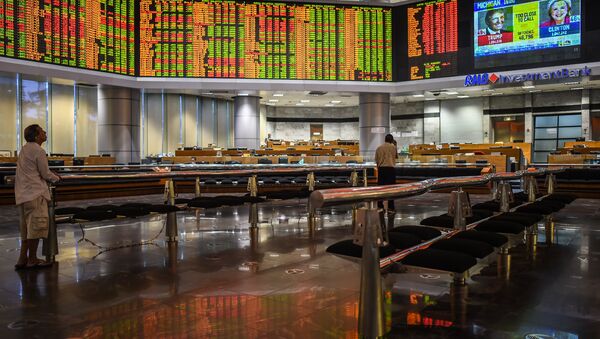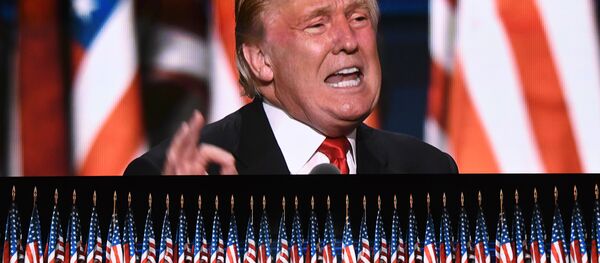As news of Trump's victory came through on Tuesday evening, the US Nasdaq stock exchange declined by 4.4 percent, the Dow Jones by 3.7 percent and the S&P 500 by 4.4 percent.
However, all the indexes showed gains of between 1.1 and 1.4 percent on Wednesday, a sign that markets are getting used to the idea of President Trump, who gave a conciliatory victory speech.
Markets in Europe and the Far East also suffered losses before bouncing back. After plunging 5.4 percent on Tuesday, Japan's Nikkei 225 regained 6.1 percent on Wednesday. Germany's Dax closed down 2.9 percent on Tuesday, but regained 1.56 percent by close on Monday.
Fujito Norihiro, a senior investment strategist at Tokyo's Mitsubishi UFJ Morgan Stanley Securities, said that many investors' early reaction to Trump's victory was the panicked sale of securities and emerging-market currencies, in favor of gold, sovereign bonds and the Japanese yen.
"Investors were confronted with an unexpected situation which required the avoidance of risk," Norihiro said.
Trump is opposed to free trade deals such as the Trans-Pacific Partnership and Transatlantic Trade and Investment Partnership, and wants to impose more tariffs on foreign-produced goods in the hope of stimulating jobs for Americans.
Nikita Krichevsky, professor at Russia's Institute of National Strategy, told Sputnik that Trump's economic ideas played a large part in his victory, appealing to ordinary voters who dislike the movement towards global free trade.
"In general, the election results in the US show that voters reject the political and economic status-quo, including the dominant tendency of the last few decades towards removing trade barriers in world trade," Krichevsky said.
"America voted against an economic model in which production leaves the country, the owners of production are exempt from tax on income made outside the US, and their own people lose their jobs and become marginalized."
Voting for Trump, US citizens wanted to take back control of their country from an unstable global economic system, Krichevsky said.
"America voted against economic dependence on the outside world, according to which the existence of a stable society is directly proportional to the quality of political and economic sentiment in third countries."




